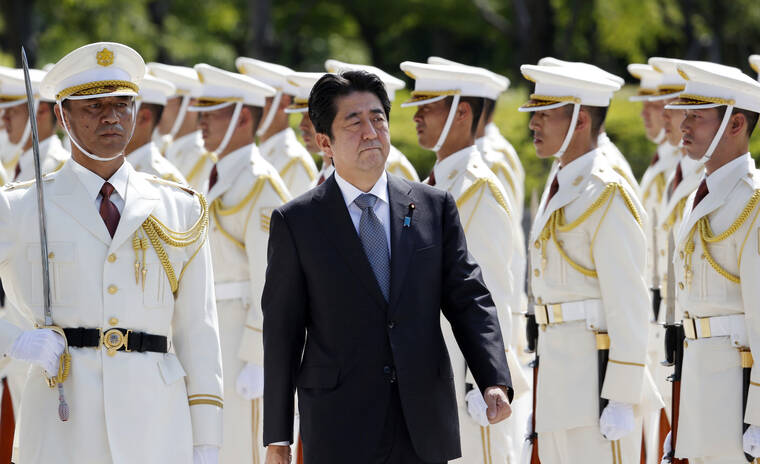Key moments in life of Shinzo Abe, former Japanese leader
Shinzo Abe was born into a prominent political family and became Japan’s longest-serving prime minister. He was credited with instilling political and economic stability though he angered Japan’s neighbors South Korea and China — along with many Japanese — with his nationalistic rhetoric and calls to revise the country’s pacifist constitution.
Abe, 67, was shot to death Friday at a campaign event in western Japan. Here is a look at key moments in his life and career:
— Sept. 21, 1954: Abe is born in Tokyo, the son of Shintaro Abe, who served as Japan’s foreign minister, and grandson of Nobusuke Kishi, a former prime minister.
— 1977: Graduates from Seikei University in Tokyo with a degree in political science, after which he moves to the U.S. to study public policy at the University of Southern California for three semesters.
— 1979: Begins working at Kobe Steel as the firm was expanding its presence abroad.
— 1982: Leaves the company to pursue new positions at the Foreign Ministry and with the ruling Liberal Democratic Party.
— 1993: First elected as an LDP legislator representing the southwestern prefecture of Yamaguchi. Abe, already viewed as a conservative, becomes a member of and eventually leads the party’s largest faction, Seiwakai, that had once been headed by his father, who died in 1991.
— 2005: Abe is appointed chief cabinet secretary under Prime Minister Junichiro Koizumi, during which he leads negotiations to return Japanese citizens abducted to North Korea. The same year, he is elected head of the LDP, putting him in line to take over as prime minister.
— Sept. 26, 2006: Abe becomes Japan’s prime minister for the first time, overseeing economic reforms while taking a hard line on North Korea and seeking to engage with South Korea and China.
— 2007: Following electoral defeats that saw the LDP lose control of the legislature for the first time in 52 years, Abe resigns as prime minister, citing health reasons. Abe has been suffering from ulcerative colitis but was able to control it with medication.
— 2012: After again being elected LDP president, Abe becomes prime minister for the second time.
— 2013: Seeking to boost growth, Abe launches his “Abenomics” policies featuring easy lending and structural reforms. Japan’s relations with China undergo a particularly rough patch but begin to improve after Abe meets with Chinese leader Xi Jinping at the APEC summit in Beijing.
— 2014-2020: Reelected LDP leader, he serves two additional terms as prime minister for a total of four, during which he develops close relations with then-president Donald Trump, holding summits and golfing together.
— Aug. 28, 2020: Announces he will step down as prime minister, again citing health reasons, after his ulcerative colitis flares up again. By that point, Abe had already become Japan’s longest-serving prime minister.
— Nov. 30, 2021: Despite leaving office, Abe shows he can still rile up Beijing with comments on Taiwan, the self-governing island China claims as its own territory and threatens to attack. In a speech, Abe warned that “military adventure would lead to economic suicide.”
— July 8, 2022: Abe is fatally shot while giving a speech at a campaign event in Nara by a gunman using a homemade weapon.

